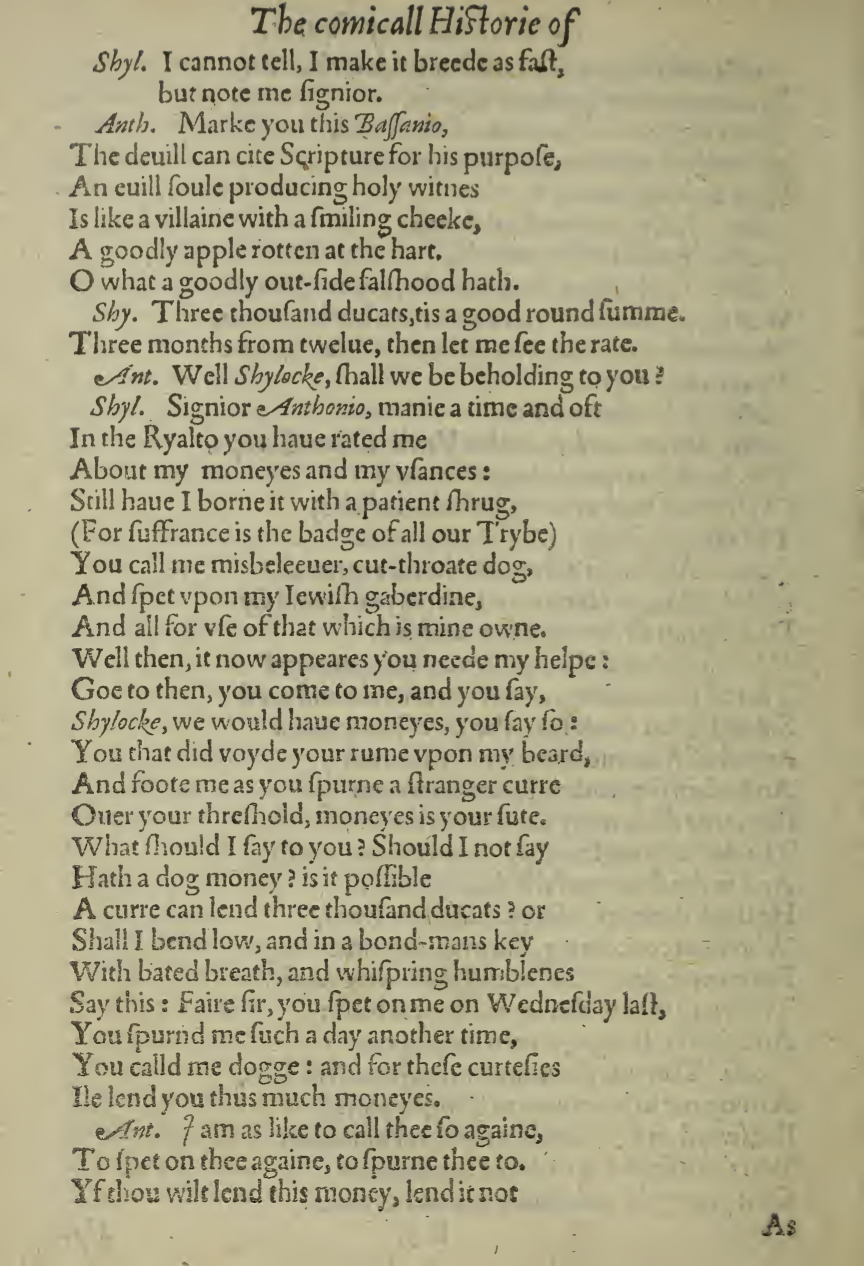In this editorial edition, we will be focusing on antisemitism in Europe in the 16th century. The interplay of antisemitism and English literature during this time period will be explored specifically through the interaction between Shylock and Antonio.
In 16th century Europe, the Protestant Reformation became an antisemitic movement. Martin Luther, one leader of the Reformation, aimed to put an end to Jews living in Christian states after he could not get them to convert to Protestant (Jewish Virtual Library). Luther began the movement in Germany, his birthplace, and it spread all throughout Europe, most notably to England where William Shakespeare lived (Britannica). Some scholars have the impression that Luther’s teaching people to submit to their rulers and his antisemitism were one of the root causes of racist Nazism (Jewish Virtual Library). In 1555, Pope Paul IV created Jewish ghettos where Jewish people were forced to live in an attempt to get them to convert to Christianity, (Hoffert, 22).
As is shown here in this scene, Antonio looks down on Shylock and his religion, considering that they are physically segregated and the Jewish communities had terrible living conditions. Antonio perceives that he is above Shylock and uses antisemitic comments to assert this self-perceived dominance. This can also explain Shylock's coldness that he gives back to Antonio; Shakespeare is attempting to paint Shylock as the bad guy, but in reality he is the victim. We see Antonio call Shylock various insults such as a dog and the devil, but since he is one of the main characters, painted as a good guy helping his friend out, Antonio's evil characterizations of Shylock work to form a poor image of him.
After taking a closer look at the history of the time period, it becomes clear that Antonio is antisemitic. This poses a broader discussion of Shakespeare's own antisemitism. We know that he lived in England during the Reformation and was subjected to the aforementioned antisemitism. Being that he wrote this play to have a massive religious conflict between Antonio, a Christian, and Shylock, a Jew, perhaps Shakespeare was projecting his own antisemitic tendencies onto his characters.
*Helpful Tip When Reading: v = u, u = v, ſ = s
